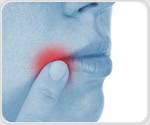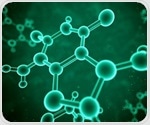
|
|
|
| |

|
|
| |
The latest Alzheimer's disease news from News Medical |
|
|
|
| |  | | | UCSF scientists have discovered how microglia engulf and break down amyloid beta, a protein that builds up in Alzheimer's, with devastating consequences for the brain. | | | | | Age often brings a gradual decline in the ability to learn new things and retain memories. This phenomenon, often associated with the elderly, is linked to the brain's deteriorating capacity to generate new neurons-a process that primarily occurs in the hippocampus -as neural stem cells (NSCs) divide and mature. Recent research suggests this decline begins much earlier in life than previously thought, potentially starting in early adulthood. | | | | |  People with dementia are diagnosed an average of 3.5 years after symptoms are first noticed, or even longer (4.1 years) for those with early-onset dementia, finds a new study led by UCL researchers. People with dementia are diagnosed an average of 3.5 years after symptoms are first noticed, or even longer (4.1 years) for those with early-onset dementia, finds a new study led by UCL researchers. | | | | | The brain's health depends on more than just its neurons. A complex network of blood vessels and immune cells acts as the brain's dedicated guardians-controlling what enters, cleaning up waste, and protecting it from threats by forming the blood-brain barrier. | | | | |  The idea that herpes infections trigger or contribute to Alzheimer's disease has been gaining favor among some scientists, raising hope that herpes treatments could slow progression of Alzheimer's symptoms among patients. The idea that herpes infections trigger or contribute to Alzheimer's disease has been gaining favor among some scientists, raising hope that herpes treatments could slow progression of Alzheimer's symptoms among patients. | | | | |  Pregnancy and motherhood trigger profound hormonal, structural, and functional changes in the brain, reshaping neural circuits to support caregiving and maternal behaviors. Recent evidence reveals that “mom brain” reflects adaptive neuroplasticity rather than simple cognitive decline. Pregnancy and motherhood trigger profound hormonal, structural, and functional changes in the brain, reshaping neural circuits to support caregiving and maternal behaviors. Recent evidence reveals that “mom brain” reflects adaptive neuroplasticity rather than simple cognitive decline. | | | | |  Weill Cornell Medicine researchers have discovered that PD-1—a molecule best known for putting the brakes on immune cells—also plays a critical role in helping T cells become long-term immune defenders in the skin. Weill Cornell Medicine researchers have discovered that PD-1—a molecule best known for putting the brakes on immune cells—also plays a critical role in helping T cells become long-term immune defenders in the skin. | |
|
|
|
|
|
|
|